Events
| Name | organizer | Where |
|---|---|---|
| MBCC “Doing Business with Mongolia seminar and Christmas Receptiom” Dec 10. 2025 London UK | MBCCI | London UK Goodman LLC |
NEWS

The European Union supports environmentally friendly and sustainable production www.montsame.mn
Ulaanbaatar/MONTSAME/. Mongolia's wool and cashmere sector is one of the most important sectors, accounting for 36 percent of total exports other than mining sector. The Government of Mongolia has focused more on the cashmere sector in recent years and within the framework of the 17 Sustainable Development Goals that 193 member states of the United Nations aims to achieve by 2030, there was set a goal to adopt more environmentally friendly production methods, thereby, lowering GHG and overall pollutant emissions while increasing the share of nationally processed leather, wool and cashmere up to 80%.
Funded by the European Union and implemented by AVSF, ‘STeP Ecolab’ project directly contributes to Sustainable Development Goal 12: Responsible Consumption and Production in Mongolian wool and cashmere sector.
STeP EcoLab Project promotes sustainable production in the whole wool and cashmere value chain by promoting:
I. Sustainable and quality raw material sourcing, relying on recognized traceability and certification schemes, while strengthening herder’s organizations and resilience of rural communities.
II. Support the textile industries for their implementation of sustainable practices focusing namely on the production efficiency in water, waste, chemicals, energy, social aspects.
III. Connecting green financing sources for those who adopt sustainable practices and help them to shift from brown to green production
IV. Sustainable wool and cashmere products in Mongolian and European niche markets.
Source: STeP EcoLab Mongolia Project
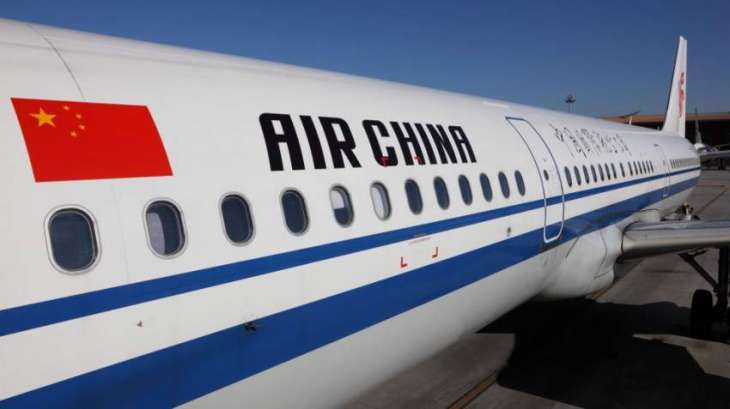
China donates medical supplies to Mongolia to help fight COVID-19 www.en.people.cn
ULAN BATOR, March 28 (Xinhua) -- China on Saturday donated protective medical supplies worth 830,000 yuan (116,961 U.S. dollars) to Mongolia to help fight the COVID-19 pandemic.
The medical supplies include a total of 500,000 masks and 5,000 fast test kits.
"The COVID-19 pandemic has become a global challenge. The Chinese government and people will continue to stand and work with Mongolia in fight against the disease," Chinese Ambassador to Mongolia Chai Wenrui said in a speech during the donation ceremony.
"I would like to express my sincere gratitude to the Chinese side for donating the much-needed supplies, such as fast test kits, protective suits and surgical masks," said Mongolian Deputy Prime Minister Ulziisaikhan Enkhtuvshin, who also heads the State Emergency Commission.
"We are glad that under the strong leadership of the Chinese government, Chinese people have started bringing the COVID-19 epidemic under control, thousands of COVID-19 patients have been cured, and people's lives have slowly returned to normal across China. I want to emphasize that this gives the Mongolian government and people the confidence that we all can win the epidemic," said Enkhtuvshin.
As of Saturday, a total of 12 people, including a French national and 11 Mongolian citizens, have tested positive for COVID-19 in Mongolia, whose conditions remain stable, according to the National Center for Communicable Diseases.
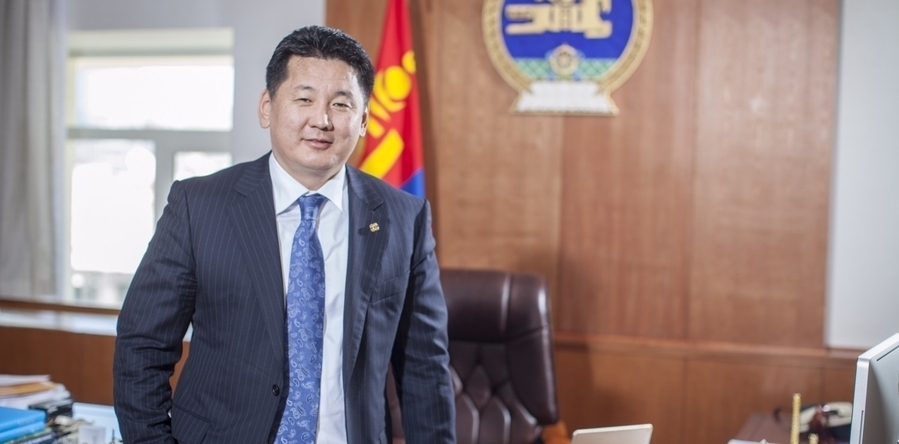
Statement by the Prime Minister of Mongolia www.bcmongolia.com
Prime Minister of Mongolia U.Khurelsukh issued a statement on March 26 at 15:00. Below is a summary of the Prime Minister's statement.
The coronavirus pandemic has been around the world for a quite some time. 531 thousand people are infected in 201 countries. Eleven cases of coronavirus infection have been reported in Mongolia. These patients are in stable condition.
As Prime Minister I am focusing on two principles. First, we will take all possible measures to protect the lives of Mongolian citizens. Human life and health must come first. Second, we are taking measures to overcome the challenges that the country's economy is facing. Today, the coronavirus is under control in Mongolia.
The fact that we are able to control the spread of coronavirus shows that the government is working effectively. Everything is under control, and we must be more responsible and accountable for what we do. It is important to note that public awareness and accountability have a significant impact on preventing the spread of the virus.
The government has decided to allocate MNT 159 billion in addition to the previously budgeted amount to provide the health sector and related organizations with necessary items. Subsequently, we are spending a total of MNT 200 billion to protect the health of our people.
We decided to take measures appropriate for the difficult economic situation. The following decisions have been made to support the private sector and the people."
Extraordinary Cabinet Decisions are as follows:
Effective 1 April 2020, all entities will be fully exempted from social insurance premiums for a period of six months.
Effective 1 April 2020, personal income tax will not be levied on citizens' salaries for six months.
Effective 1 April 2020, companies with an income of less than MNT 1.5 billion MNT be completely exempted from corporate income tax for six months. No tax will be charged until 1 October 2020.
Offer MNT 200,000 allowance per employee per month to entities that have retained their employees on payroll despite their weakening operations. This provision will remain in effect for 3 months.
Issue MNT 300 billion in loans at 3% interest to finance cashmere purchase from herders. The Government will be in charge of the loan.
Increase Child Money Program allowance by MNT 10,000 from MNT 20,000 to MNT 30,000 per month per child up to the age of 18.
Lower the price of gasoline by 300-400 tugriks per liter effective 15 April 2020.

Mongolia’s Small-Country Strategy for Containing COVID-19 www.thediplomat.com
The global pandemic of COVID-19 did not skip Mongolia. The disease, caused by a novel strain of coronavirus, has affected all the countries in East Asia, and the number of infected is increasing daily. As of this writing, China, where the outbreak began, had seen a total of 81,897 cases, South Korea had 9,332, Japan had 1,387, and Russia had 1,036 (North Korea has so far denied the existence of any COVID-19 cases, though that is widely questioned).
In East Asia, then, Mongolia so far has the lowest number of infected people with just 11 cases.
The government of Mongolia’s containment strategy is so far working for the country of 3.2 million people.
As early as mid-February, when the new coronavirus was beginning to spread within Chinese borders, the Mongolian government’s strategy was to adopt decisive preventative measures. By canceling the national holiday Tsagaan Sar, the Mongolian lunar new year, the country was able to slow travel between Ulaanbaatar and provinces outside the capital. Additionally, Mongolia closed its borders with China and Russia, stopping the inflow and outflow of people, and banned international flights from hotspots like South Korea. These steps have helped immensely to prevent the spread of COVID-19.
It is imperative for Mongolia to take COVID-19 seriously because of its vulnerability. The scope and the rate of infection of COVID-19 pose a great threat to Mongolia medically, economically, and socially. On the other hand, the Mongolian government was able to quickly mobilize a COVID-19 task force of 832 individuals monitoring 336 checkpoints around the country as early as February 23, 2020.
Mongolia’s small population potentially made it easier to track, locate, and contain the spread of the virus. The government was also able to bring its citizens home from countries like South Korea, Japan, Turkey, and Russia.
The first case of COVID-19 in Mongolia was a French energy company employee who traveled into Mongolia via Russia on March 2. The Mongolian government and the National Emergency Management Agency (NEMA) quickly responded by containing the man and the people he had been in contact with. The government’s containment effort was supported by the public, who had already been alerted by mid-February. Mongolians learned about the increasing severity of the outbreak and the vulnerabilities shown in China, South Korea, and Italy.
Mongolia has even been active in supporting other countries in combating COVID-19. Mongolian President Battulga Khaltmaa’s visit to China on February 27 was viewed as an example of the most genuine support to China, which at the time was in the most difficult part of its struggle to contain COVID-19. In support of China’s fight against the virus, Mongolia donated 30,000 sheep as a strategic partner and a neighbor. Mongolia has also been on the receiving end of aid. The United States, as Mongolia’s fifth strategic partner, has committed $1.2 million in financial support to combating COVID-19 in Mongolia.
On March 24, in an interview with a local media agency, Major General Badral Tuvshin, director of the National Emergency Management Agency, stated that “In combating COVID-19, Mongolia is not in the stage of a national emergency. In accordance with the decision of the Cabinet Secretariat of Mongolia, the National Emergency Management Agency is working under the ‘heightened awareness’ stage in containing COVID-19. If the situation worsens, the next level of containment strategy will be ‘all-hands-on-deck-readiness.’”
He continued by giving an outline of Mongolia’s situation: “Moreover, as of March 24, 2020, there are 2,034 people in quarantine; however, the numbers are expected to grow as Mongolians are expected to return home from abroad. Among the nine provinces that are currently utilizing quarantine facilities, Bayan-Olgii province [in the very western part of Mongolia] has the highest number of people [in quarantine], around 360.”
On March 22, 2020, the Cabinet Secretariat of Government of Mongolia assembled an emergency session and made a decision to close down schools and social activities until April 30. The government is currently expecting to receive around 750 Mongolian citizens from abroad. The earliest arrivals will be coming from South Korea on April 2, and Japan on April 3. Those arriving will be quarantined for an extended 21 days, per a recent government decision on containment of COVID-19. The successful mobilization of the Mongolian government and its task force in locating registered citizens abroad continue to play a crucial role in containment efforts.
Thanks to the National Management of Emergency Agency’s COVID-19 task force and its efforts, thus far Mongolia has been able to contain the spread of the virus in its small population.
Bolor Lkhaajav received a Master of Arts degree in Asia-Pacific Studies from the University of San Francisco. She is currently writing a book on Mongolia’s foreign policy and security.
...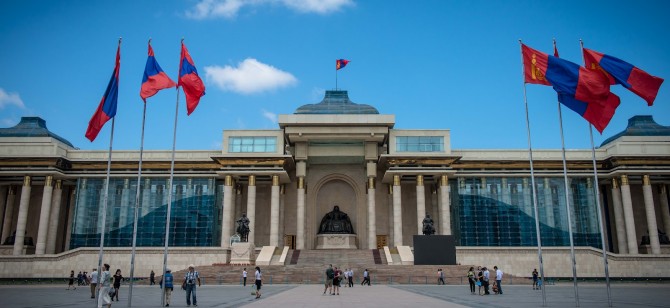
Government unveils MNT 5.1 trillion plan to help those affected by COVID-19 www.montsame.mn
Ulaanbaatar /MONTSAME/. On March 27, Prime Minister of Mongolia U.Khurelsukh delivered an address to the people and entities of Mongolia to introduce the government's new measures concerning the economic impact of the COVID-19 pandemic.
“In the time of the coronavirus crisis, the government adheres to two main principles, first, to protect the health of the Mongolian people, and second, to pay attention on the economic situation. In this connection, we are utilizing all available resources.” said the Prime Minister.
"MNT 17 billion has been disbursed for purchasing essential medical equipment and for disinfection and decontamination, and additional MNT 20.6 billion is to be allocated" he said. “MNT 159 billion financing will be spent for necessary medical and protective equipment and so on”.
He then noted that the government is spending MNT 200 billion in total to safeguard health of the people.
Afterwards, PM Khurelsukh announced that the government of Mongolia today decided to take the following measures to be financed with MNT 5.1 trillion to support the country’s economy weakened by the coronavirus outbreak.
1. All entities and companies are exempt from paying social insurance contributions for six months from April 1 until October 1.
2. Personal income tax will be waived for six months from April 1 until October 1.
3. Entities with revenues of less than MNT 1.5 billion are entitled to exemption of corporate tax for six months from April 1 until October 1.
4. For 3 months, the government will pay monthly MNT 200,000 to each employee of private companies keeping their workers on their job despite the difficulties in their businesses and declining revenues.
5. Loan with 3-percent interest rate, totaling MNT 300 billion, will be granted by the government to national cashmere companies for purchasing cashmere from herders. Cashmere for price will be set at less than MNT 100 thousand. This measure is expected to directly benefit 233 thousand herding families, according to the PM.
6. For 3 months, the monthly ‘Child Money’ allowance of MNT 20,000 to children aged under 18 is raised to MNT 30,000.
7. Necessary measures will be taken so that retail price of fuel per liter would be cut by MNT 300-400, starting April 15.
During the address, the Prime Minister expressed his position on the President’s address on the steps for containing the impacts of COVID-19.
“We consider that halting the large scale crucial development projects outlined in the State Budget would result in further employment decline. Therefore, we are not planning to make revisions to the 2020 State Budget. Furthermore, the upcoming Parliamentary Elections will not be postponed as we see that as an unnecessary step at this moment. However, we respect the recommendations by the President and will further look into them” said PM Khurelsukh.
Following the Prime Minister’s address, Finance Minister Ch.Khurelbaatar introduced that the State Budget is running short of MNT 275 billion than planned and the MNT 5.1 trillion required for today’s new measures will be made available through government’s appropriate capital management of state funds.
The Finance Minister also mentioned that the government has paid off debts amounting to MNT 8.2 trillion in the past three years with the help of budget discipline and economic growth.
...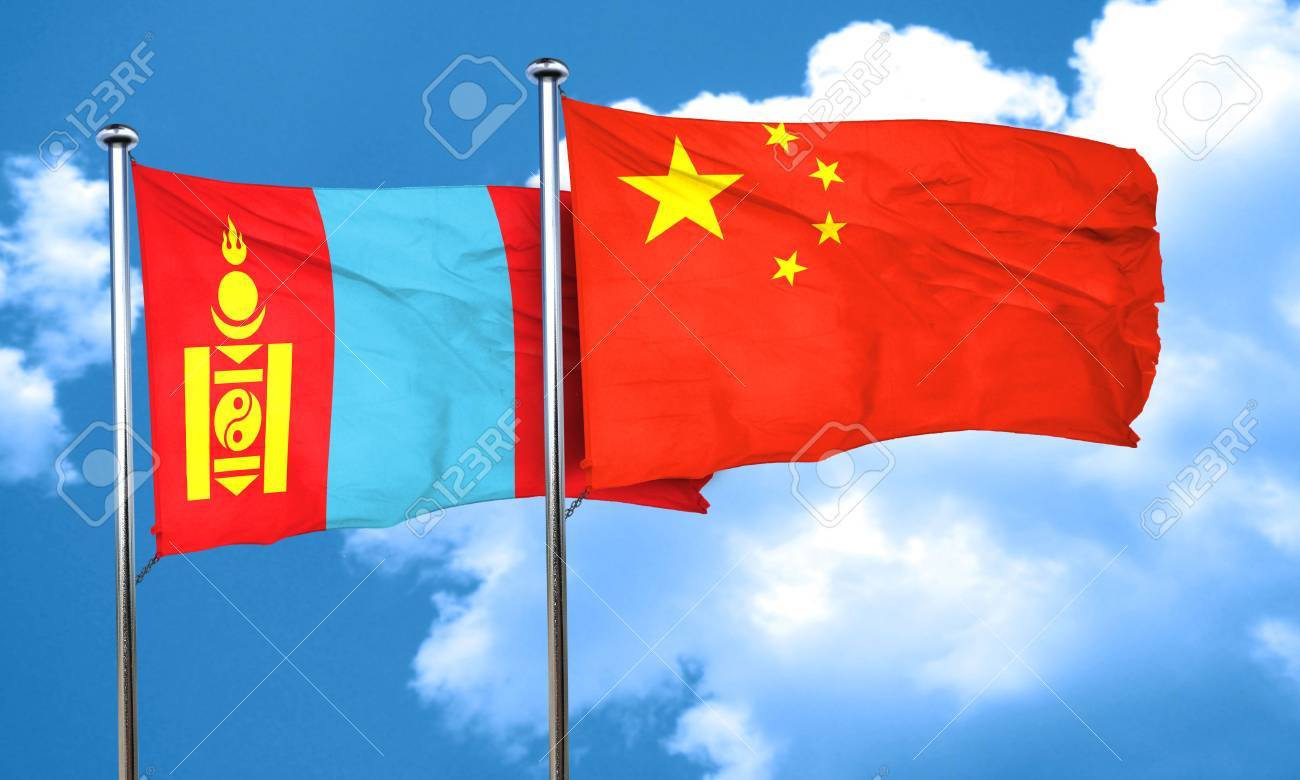
Throughput grows in China-Mongolia border customs despite COVID-19 www.xinhuanet.com
HOHHOT, March 29 (Xinhua) -- The land checkpoint of Erenhot in north China's Inner Mongolia Autonomous Region saw an increase in throughput in the first two months, despite measures taken to reduce gatherings for the prevention and control of the novel coronavirus disease (COVID-19).
According to the Erenhot customs, the volume of imports and exports through the customs reached 2.28 million tonnes in the first two months, up 25.9 percent year on year. Among them, imports accounted for more than 90 percent of the total, up over a quarter year on year, while exports also saw an increase of 12.6 percent year on year.
The customs attributed the surge to the China-Europe freight train services importing Mongolian commodities and livestock products, and exporting Chinese fruits, vegetables as well as mechanical and electrical products. As of March 13, Erenhot had seen 30,000 TEUs of goods imported and exported since the start of this year, up 61.3 percent year on year.
The customs set up a green channel for fruit and vegetable exports to ensure the transport efficiency of fresh farm produce. In the first two months, the export volume of fruits and vegetables through Erenhot reached 14,000 tonnes, up 5 percent year on year, and the export value grew by 15.9 percent year on year to reach 17 million yuan (about 2.39 million U.S. dollars).
Since the beginning of March, Erenhot has seen Chinese exports of 3 million face masks to Mongolia. On March 25, China donated a batch of nucleic acid detection kits, medical masks and disposable medical protective clothing through the customs to assist Mongolia's pandemic prevention and control.
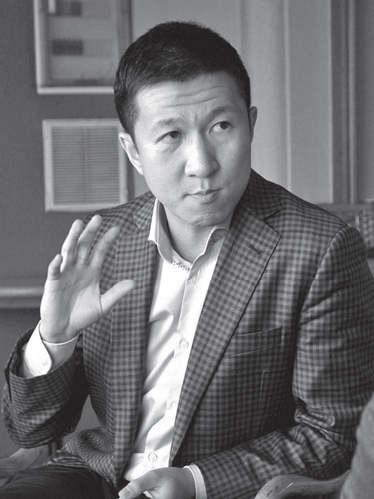
Bilguun: Drop in copper price may affect other commodities www.zgm.mn
The current business environment of Mongolia has been declining as the spread of the coronavirus impacts the global economy in the last few months. Across nearly every industry, multinational companies are confronting the stark reality that business will not go on as usual. Economist and CEO of MIBG Bilguun Ankhbayar expressed his opinion on the situation in Mongolia.
-Since the COVID-19 outbreak has been threatening economies around the world, some of the differences have been seen in the stock market. For example, Mazaalai bond yield rose dramatically to 12 percent and Khuraldai bond to 13 percent as well. What is your verdict on it?
-Not only international investors but also users have experienced mental shock. It leads people to act strangely. Everyone individuals including the investors have been seeking zero-risk options since the virus became worse. Following the situation, many changes have been made in the markets.
-Most of the econismts seem to expect Mongolia to issue bonds again in the near future as the Government bonds are due soon. But the bond yields have increased. Do you think it will be stabilized at its previous rate?
-As far as I can see, the bond yields may decrease but not the same as it was before. Mongolia is likely to attract additional finance by issuing bonds.
-Mining sector, one of Mongolia’s main sources of economic growth, has been halted for a couple of months. Even though the coal export to China resumed recently, is it still possible to cover its losses in short term?
-It is hard, especially in the short term. The borders to China had been closed since the early January. In other words, it is merely impossible to cover almost two months of coal exports revenue. However, it is not the biggest problem for Mongolia than the potential commodity price decline. Recent drop in copper price may affect other commodities such as coking coal. Global economies are all connected. Producers and exporters in China are most likely to see decline, increasing the risk of Mongolia’s mineral products price to slip in the long term.
-Does the Single Window policy necessary during the economic hardship?
-Ofcourse, it will be effective to provide public service in this situation. As the investors have seen, Mongolians have the potential to unite when the crisis occur and the Government can provide reliable information, showing solidarity and cooperation.
-Central banks around the world have taken measures to manage the economic crisis, such as cutting the policy interest rate or spuring specific sectors. Most of them combined both fiscal and monetary policy. How accurate is Mongolia’s fiscal policy at the time? What should we do in the upcoming year?
-Well, we need to expand the budget to invest it on the long term projects, namely mining sector. It will benefit Mongolia in the long term as well as affecting other sectors. Focusing on the main revenue source is important.
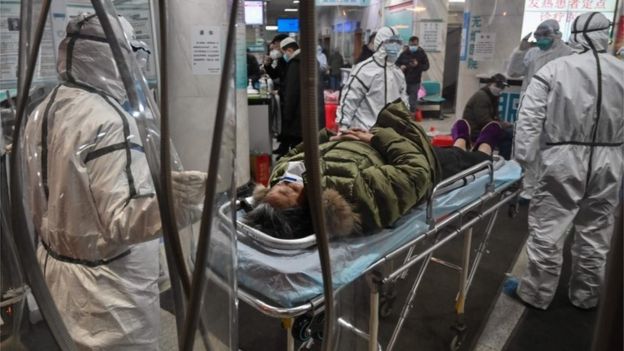
Coronavirus: US overtakes China with most cases www.bbc.com
The US now has more confirmed cases of coronavirus than any other country with more than 85,500 positive tests.
According to the latest figures collated by Johns Hopkins University, the US has overtaken China (81,782 cases) and Italy (80,589).
But with almost 1,300 Covid-19-related fatalities, the US death toll lags behind China (3,291) and Italy (8,215).
The grim milestone came as President Donald Trump predicted the nation would get back to work "pretty quickly".
How did the White House react?
Asked about the latest figures at a White House briefing on Thursday afternoon, President Trump said it was "a tribute to the amount of testing that we're doing".
Vice-President Mike Pence said coronavirus tests were now available in all 50 states and more than 552,000 tests had been conducted nationwide.
Trump says US tested more than S Korea - is he right?
Mr Trump also cast doubt on the figures coming out of Beijing, telling reporters: "You don't know what the numbers are in China."
He said he would speak to President Xi Jinping by phone on Thursday night, but denied the Chinese leader had asked him to "calm down" the language he uses to refer to the pandemic, which the US leader refers to as "the Chinese virus".
Does the president still hope to ease restrictions?
Mr Trump has set a much-criticised goal of Easter Sunday, 12 April, for reopening the country. That plan seemed to gather impetus on Thursday as it emerged an unprecedented 3.3 million Americans have been laid off because of the virus.
Record number of Americans file for unemployment
At Thursday's briefing, he said: "They [the American people] have to go back to work, our country has to go back, our country is based on that and I think it's going to happen pretty quickly.
"We may take sections of our country, we may take large sections of our country that aren't so seriously affected and we may do it that way."
He added: "A lot of people misinterpret when I say go back - they're going to be practising as much as you can social distancing, and washing your hands and not shaking hands and all of the things we talked about."
He promised more details next week.
What could he be planning?
In a letter to state governors on Thursday, Mr Trump said his team plans to release federal social distancing guidelines that may advise some regions to loosen restrictions.
Mr Trump wrote of a "long battle ahead" and said "robust" testing protocols might allow some counties to lift their safeguards against the coronavirus.
He said the "new guidelines" would create low, medium and high risk zones that would allow the government to advise on "maintaining, increasing, or relaxing social distancing and other mitigation measures they have put in place".
Trump knows economic meltdown brings political pain
What this crisis reveals about US - and its president
On Thursday night, Mr Trump phoned in to Fox News host Sean Hannity's programme and said he thinks Iowa, Idaho, Nebraska and parts of Texas could reopen earlier than other states.
The plan emerged as new research on Thursday estimated Covid-19-related deaths in the US could top 80,000 over the coming four months.
As many as 2,300 patients could die every day during the epidemic peak, set for some point in April, even if people observe strict social distancing, according to the study from the Institute for Health Metrics and Evaluation at the University of Washington's School of Medicine.
What's the reaction?
The president's get-back-to-workplan found unexpected support on Thursday from a prominent Democrat.
New York Governor Andrew Cuomo said statewide quarantine orders may not have been the best approach to coronavirus.
"Young people then quarantined with older people was probably not the best public health strategy," he told a press conference, "because the younger people could have been exposing the older people to an infection."
Mr Cuomo said a better way forward might be a "get-back-to-work strategy" in tandem with a public health strategy.
Public health experts on the White House task force have demurred when asked about reopening the country by Easter, suggesting the timeline should be "very flexible".
Can the president order everyone back to work?
No. On 16 March, he set a 15-day period to slow down the spread of Covid-19 by urging all Americans to drastically scale back their public interactions.
But those guidelines were voluntary and did not amount to a national order.
The US Constitution makes clear states have the power for maintaining public order and safety, which scholars say means it is the responsibility of governors to decide when virus-related restrictions get lifted.
Currently 21 US states have told residents to stay in their homes in order to contain the pandemic.
What's happening elsewhere in the US?
In other developments:
In the coronavirus hot zone of New York City, more than 6,400 emergency medical calls were placed over 24 hours on Tuesday, surpassing the total from the 9/11 attacks
Mark Blum, an actor who starred in Desperately Seeking Susan and Crocodile Dundee, has died aged 69 with coronavirus, says the Screen Actors Guild
Canada slammed a US proposal to deploy troops on their joint border to help fight the virus - the deputy prime minister said it would be "damaging to our relationship"
A supermarket in Pennsylvania said it had to destroy more than $35,000 worth of food after a woman intentionally coughed all over it in a coronavirus prank
According to the San Francisco Chronicle, coyotes are roaming the empty streets of the California city, after residents self-isolated to limit the spread of the virus
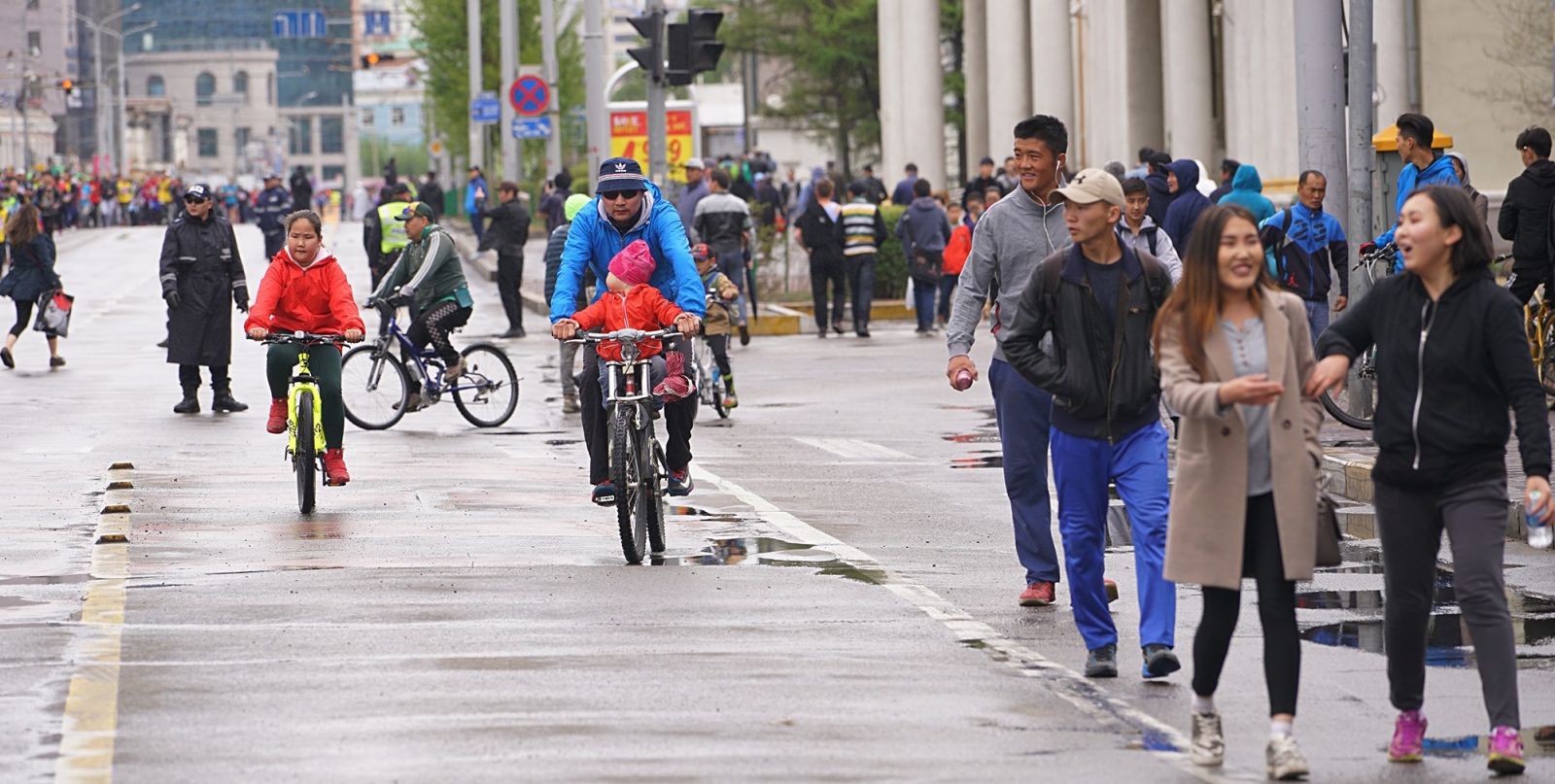
“Mongolia Poverty Update” Report Published www.worldbank.org
Ulaanbaatar, March 26, 2020 - The National Statistics Office of Mongolia (NSO) and the World Bank today launched a new joint poverty report, Mongolia Poverty Update, which draws on the 2018 Household Socio-Economic Survey (HSES).
According to the report, the pace of poverty reduction slowed down despite robust macroeconomic growth, indicating that Mongolia is struggling to translate the benefits of macroeconomic growth into improvements in household welfare, especially for the poor.
The report also highlights the uneven progress in poverty reduction between urban and rural areas during 2016-2018. Overall, these were good years for most rural herders as a result of higher livestock product prices. By contrast, urban residents in the poorest group were most negatively affected. Out of all the consumption classes, only the poorest urban households experienced negative real income growth (-1.0 percent, YoY) during this period due to sluggish wage and business income growth. Higher food price inflation also disproportionately affected urban poor and vulnerable households which spend a majority of income on food and purchase food items out of their own pockets. As a result, the rural poverty rate fell by 4.1 percentage points while the urban poverty rate was little changed from 2016 to 2018.
“This poverty report provides us with the latest updates of poverty status and profile of people in Mongolia and highlights the challenges and opportunities to tackle poverty reduction going forward,” said Ms. A. Ariunzaya, Chairperson of the National Statistics Office. “We strongly hope that the analysis and findings of this report shall serve as reference material not only for policy- and decision-makers, but also for researchers and a diverse range of audiences interested and working in poverty and socio-economic studies.”
The updated poverty profile shows that poverty is most prevalent among low-skilled wage workers, the unemployed and economically inactive individuals, large families and children. Important challenges are also seen in service delivery, particularly with regard to proper sanitation and reliable heating sources.
Mongolia’s education attainment level, particularly among youth, is the highest in the East Asia region, but for women, having a university diploma does not necessarily mean that they can obtain a better-paying job. The gender gap in labor force participation has barely improved over the past decade. Furthermore, despite a great improvement of herders’ welfare level, they remain highly vulnerable to livestock price shocks and harsh winters, which could have a profound impact on their well-being without adequate safety nets.
Mongolia is one of the youngest countries in the region in terms of the demographic structure. To harness the upcoming demographic dividend opportunity for inclusive growth and poverty reduction, the report suggests that the country will need to create a sufficient number of job opportunities in a wide variety of productive sectors in order to absorb these new workers.
“Monitoring and analyzing quality and timely data from the household surveys will help to track progress to date as well as shed light on where support and policy interventions are most needed,” said Andrei Mikhnev, World Bank Country Manager for Mongolia. “To accelerate poverty reduction and promote shared and sustainable prosperity in Mongolia, investment in children and youth to improve their skillsets to meet labor market needs is crucial, as is promotion of fair and equitable labor force participation for women.”
...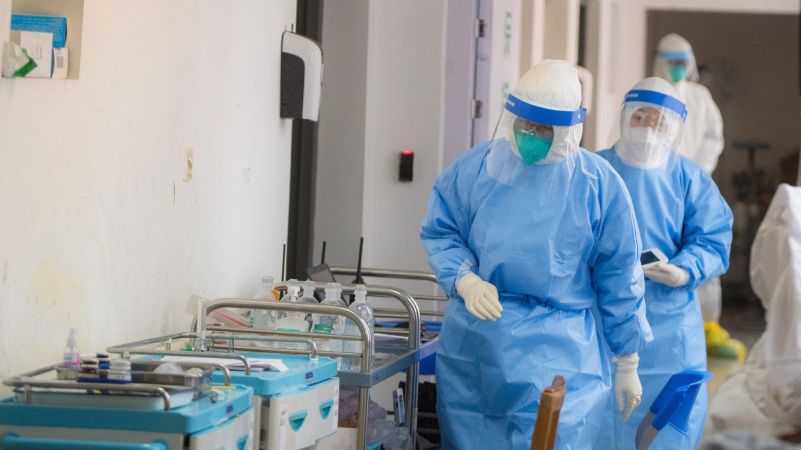
One new coronavirus case confirmed in Mongolia, total number stands at 11 www.news.mn
At today’s daily press conference of the Ministry of Health on the situations surrounding the COVID-19 pandemic, D.Nyamkhuu, Director of the National Center of Communicable Diseases (NCCD) announced that another one person, who is staying under mandatory isolation after arriving in Mongolia on a charter flight from Istanbul Turkey last week, was tested positive for the coronavirus.
D.Nyamkhuu, Director of the National Center of Communicable Diseases: “221 passengers aboard the government arranged charter flight all went under testing for coronavirus and one person is confirmed to be infected with the coronavrius. As of today, 184 people are being monitored under isolation at the NCCD in Ulaanbaatar. Moreover, random samples taken from 25 people at local hospitals were all negative for Covid-19. And every time new coronavirus case is confirmed, all close contacts are identified and placed under monitoring. Around MNT 800 thousand is being spent on each coronavirus patient, including costs for personal protective equipment for the healthcare team members. Each team consists of seven members, including doctors, nurses and caretakers”.
Between March 15-19, the government of Mongolia arranged evacuation flights to Seoul, Japan, Berlin and Istanbul, to bring back Mongolian nationals stranded aboard due to coronavirus travel restrictions around the world.
The confirmed coronavirus cases now total 11, all of them are imported cases, including a French national and 10 Mongolians flew from abroad.
As the State Emergency Commission has announced to charter several more quarantine flights to repatriate Mongolians aboard starting from April 1, health organizations are taking preparatory measures to accommodate them.
- «
- 1
- 2
- 3
- 4
- 5
- 6
- 7
- 8
- 9
- 10
- 11
- 12
- 13
- 14
- 15
- 16
- 17
- 18
- 19
- 20
- 21
- 22
- 23
- 24
- 25
- 26
- 27
- 28
- 29
- 30
- 31
- 32
- 33
- 34
- 35
- 36
- 37
- 38
- 39
- 40
- 41
- 42
- 43
- 44
- 45
- 46
- 47
- 48
- 49
- 50
- 51
- 52
- 53
- 54
- 55
- 56
- 57
- 58
- 59
- 60
- 61
- 62
- 63
- 64
- 65
- 66
- 67
- 68
- 69
- 70
- 71
- 72
- 73
- 74
- 75
- 76
- 77
- 78
- 79
- 80
- 81
- 82
- 83
- 84
- 85
- 86
- 87
- 88
- 89
- 90
- 91
- 92
- 93
- 94
- 95
- 96
- 97
- 98
- 99
- 100
- 101
- 102
- 103
- 104
- 105
- 106
- 107
- 108
- 109
- 110
- 111
- 112
- 113
- 114
- 115
- 116
- 117
- 118
- 119
- 120
- 121
- 122
- 123
- 124
- 125
- 126
- 127
- 128
- 129
- 130
- 131
- 132
- 133
- 134
- 135
- 136
- 137
- 138
- 139
- 140
- 141
- 142
- 143
- 144
- 145
- 146
- 147
- 148
- 149
- 150
- 151
- 152
- 153
- 154
- 155
- 156
- 157
- 158
- 159
- 160
- 161
- 162
- 163
- 164
- 165
- 166
- 167
- 168
- 169
- 170
- 171
- 172
- 173
- 174
- 175
- 176
- 177
- 178
- 179
- 180
- 181
- 182
- 183
- 184
- 185
- 186
- 187
- 188
- 189
- 190
- 191
- 192
- 193
- 194
- 195
- 196
- 197
- 198
- 199
- 200
- 201
- 202
- 203
- 204
- 205
- 206
- 207
- 208
- 209
- 210
- 211
- 212
- 213
- 214
- 215
- 216
- 217
- 218
- 219
- 220
- 221
- 222
- 223
- 224
- 225
- 226
- 227
- 228
- 229
- 230
- 231
- 232
- 233
- 234
- 235
- 236
- 237
- 238
- 239
- 240
- 241
- 242
- 243
- 244
- 245
- 246
- 247
- 248
- 249
- 250
- 251
- 252
- 253
- 254
- 255
- 256
- 257
- 258
- 259
- 260
- 261
- 262
- 263
- 264
- 265
- 266
- 267
- 268
- 269
- 270
- 271
- 272
- 273
- 274
- 275
- 276
- 277
- 278
- 279
- 280
- 281
- 282
- 283
- 284
- 285
- 286
- 287
- 288
- 289
- 290
- 291
- 292
- 293
- 294
- 295
- 296
- 297
- 298
- 299
- 300
- 301
- 302
- 303
- 304
- 305
- 306
- 307
- 308
- 309
- 310
- 311
- 312
- 313
- 314
- 315
- 316
- 317
- 318
- 319
- 320
- 321
- 322
- 323
- 324
- 325
- 326
- 327
- 328
- 329
- 330
- 331
- 332
- 333
- 334
- 335
- 336
- 337
- 338
- 339
- 340
- 341
- 342
- 343
- 344
- 345
- 346
- 347
- 348
- 349
- 350
- 351
- 352
- 353
- 354
- 355
- 356
- 357
- 358
- 359
- 360
- 361
- 362
- 363
- 364
- 365
- 366
- 367
- 368
- 369
- 370
- 371
- 372
- 373
- 374
- 375
- 376
- 377
- 378
- 379
- 380
- 381
- 382
- 383
- 384
- 385
- 386
- 387
- 388
- 389
- 390
- 391
- 392
- 393
- 394
- 395
- 396
- 397
- 398
- 399
- 400
- 401
- 402
- 403
- 404
- 405
- 406
- 407
- 408
- 409
- 410
- 411
- 412
- 413
- 414
- 415
- 416
- 417
- 418
- 419
- 420
- 421
- 422
- 423
- 424
- 425
- 426
- 427
- 428
- 429
- 430
- 431
- 432
- 433
- 434
- 435
- 436
- 437
- 438
- 439
- 440
- 441
- 442
- 443
- 444
- 445
- 446
- 447
- 448
- 449
- 450
- 451
- 452
- 453
- 454
- 455
- 456
- 457
- 458
- 459
- 460
- 461
- 462
- 463
- 464
- 465
- 466
- 467
- 468
- 469
- 470
- 471
- 472
- 473
- 474
- 475
- 476
- 477
- 478
- 479
- 480
- 481
- 482
- 483
- 484
- 485
- 486
- 487
- 488
- 489
- 490
- 491
- 492
- 493
- 494
- 495
- 496
- 497
- 498
- 499
- 500
- 501
- 502
- 503
- 504
- 505
- 506
- 507
- 508
- 509
- 510
- 511
- 512
- 513
- 514
- 515
- 516
- 517
- 518
- 519
- 520
- 521
- 522
- 523
- 524
- 525
- 526
- 527
- 528
- 529
- 530
- 531
- 532
- 533
- 534
- 535
- 536
- 537
- 538
- 539
- 540
- 541
- 542
- 543
- 544
- 545
- 546
- 547
- 548
- 549
- 550
- 551
- 552
- 553
- 554
- 555
- 556
- 557
- 558
- 559
- 560
- 561
- 562
- 563
- 564
- 565
- 566
- 567
- 568
- 569
- 570
- 571
- 572
- 573
- 574
- 575
- 576
- 577
- 578
- 579
- 580
- 581
- 582
- 583
- 584
- 585
- 586
- 587
- 588
- 589
- 590
- 591
- 592
- 593
- 594
- 595
- 596
- 597
- 598
- 599
- 600
- 601
- 602
- 603
- 604
- 605
- 606
- 607
- 608
- 609
- 610
- 611
- 612
- 613
- 614
- 615
- 616
- 617
- 618
- 619
- 620
- 621
- 622
- 623
- 624
- 625
- 626
- 627
- 628
- 629
- 630
- 631
- 632
- 633
- 634
- 635
- 636
- 637
- 638
- 639
- 640
- 641
- 642
- 643
- 644
- 645
- 646
- 647
- 648
- 649
- 650
- 651
- 652
- 653
- 654
- 655
- 656
- 657
- 658
- 659
- 660
- 661
- 662
- 663
- 664
- 665
- 666
- 667
- 668
- 669
- 670
- 671
- 672
- 673
- 674
- 675
- 676
- 677
- 678
- 679
- 680
- 681
- 682
- 683
- 684
- 685
- 686
- 687
- 688
- 689
- 690
- 691
- 692
- 693
- 694
- 695
- 696
- 697
- 698
- 699
- 700
- 701
- 702
- 703
- 704
- 705
- 706
- 707
- 708
- 709
- 710
- 711
- 712
- 713
- 714
- 715
- 716
- 717
- 718
- 719
- 720
- 721
- 722
- 723
- 724
- 725
- 726
- 727
- 728
- 729
- 730
- 731
- 732
- 733
- 734
- 735
- 736
- 737
- 738
- 739
- 740
- 741
- 742
- 743
- 744
- 745
- 746
- 747
- 748
- 749
- 750
- 751
- 752
- 753
- 754
- 755
- 756
- 757
- 758
- 759
- 760
- 761
- 762
- 763
- 764
- 765
- 766
- 767
- 768
- 769
- 770
- 771
- 772
- 773
- 774
- 775
- 776
- 777
- 778
- 779
- 780
- 781
- 782
- 783
- 784
- 785
- 786
- 787
- 788
- 789
- 790
- 791
- 792
- 793
- 794
- 795
- 796
- 797
- 798
- 799
- 800
- 801
- 802
- 803
- 804
- 805
- 806
- 807
- 808
- 809
- 810
- 811
- 812
- 813
- 814
- 815
- 816
- 817
- 818
- 819
- 820
- 821
- 822
- 823
- 824
- 825
- 826
- 827
- 828
- 829
- 830
- 831
- 832
- 833
- 834
- 835
- 836
- 837
- 838
- 839
- 840
- 841
- 842
- 843
- 844
- 845
- 846
- 847
- 848
- 849
- 850
- 851
- 852
- 853
- 854
- 855
- 856
- 857
- 858
- 859
- 860
- 861
- 862
- 863
- 864
- 865
- 866
- 867
- 868
- 869
- 870
- 871
- 872
- 873
- 874
- 875
- 876
- 877
- 878
- 879
- 880
- 881
- 882
- 883
- 884
- 885
- 886
- 887
- 888
- 889
- 890
- 891
- 892
- 893
- 894
- 895
- 896
- 897
- 898
- 899
- 900
- 901
- 902
- 903
- 904
- 905
- 906
- 907
- 908
- 909
- 910
- 911
- 912
- 913
- 914
- 915
- 916
- 917
- 918
- 919
- 920
- 921
- 922
- 923
- 924
- 925
- 926
- 927
- 928
- 929
- 930
- 931
- 932
- 933
- 934
- 935
- 936
- 937
- 938
- 939
- 940
- 941
- 942
- 943
- 944
- 945
- 946
- 947
- 948
- 949
- 950
- 951
- 952
- 953
- 954
- 955
- 956
- 957
- 958
- 959
- 960
- 961
- 962
- 963
- 964
- 965
- 966
- 967
- 968
- 969
- 970
- 971
- 972
- 973
- 974
- 975
- 976
- 977
- 978
- 979
- 980
- 981
- 982
- 983
- 984
- 985
- 986
- 987
- 988
- 989
- 990
- 991
- 992
- 993
- 994
- 995
- 996
- 997
- 998
- 999
- 1000
- 1001
- 1002
- 1003
- 1004
- 1005
- 1006
- 1007
- 1008
- 1009
- 1010
- 1011
- 1012
- 1013
- 1014
- 1015
- 1016
- 1017
- 1018
- 1019
- 1020
- 1021
- 1022
- 1023
- 1024
- 1025
- 1026
- 1027
- 1028
- 1029
- 1030
- 1031
- 1032
- 1033
- 1034
- 1035
- 1036
- 1037
- 1038
- 1039
- 1040
- 1041
- 1042
- 1043
- 1044
- 1045
- 1046
- 1047
- 1048
- 1049
- 1050
- 1051
- 1052
- 1053
- 1054
- 1055
- 1056
- 1057
- 1058
- 1059
- 1060
- 1061
- 1062
- 1063
- 1064
- 1065
- 1066
- 1067
- 1068
- 1069
- 1070
- 1071
- 1072
- 1073
- 1074
- 1075
- 1076
- 1077
- 1078
- 1079
- 1080
- 1081
- 1082
- 1083
- 1084
- 1085
- 1086
- 1087
- 1088
- 1089
- 1090
- 1091
- 1092
- 1093
- 1094
- 1095
- 1096
- 1097
- 1098
- 1099
- 1100
- 1101
- 1102
- 1103
- 1104
- 1105
- 1106
- 1107
- 1108
- 1109
- 1110
- 1111
- 1112
- 1113
- 1114
- 1115
- 1116
- 1117
- 1118
- 1119
- 1120
- 1121
- 1122
- 1123
- 1124
- 1125
- 1126
- 1127
- 1128
- 1129
- 1130
- 1131
- 1132
- 1133
- 1134
- 1135
- 1136
- 1137
- 1138
- 1139
- 1140
- 1141
- 1142
- 1143
- 1144
- 1145
- 1146
- 1147
- 1148
- 1149
- 1150
- 1151
- 1152
- 1153
- 1154
- 1155
- 1156
- 1157
- 1158
- 1159
- 1160
- 1161
- 1162
- 1163
- 1164
- 1165
- 1166
- 1167
- 1168
- 1169
- 1170
- 1171
- 1172
- 1173
- 1174
- 1175
- 1176
- 1177
- 1178
- 1179
- 1180
- 1181
- 1182
- 1183
- 1184
- 1185
- 1186
- 1187
- 1188
- 1189
- 1190
- 1191
- 1192
- 1193
- 1194
- 1195
- 1196
- 1197
- 1198
- 1199
- 1200
- 1201
- 1202
- 1203
- 1204
- 1205
- 1206
- 1207
- 1208
- 1209
- 1210
- 1211
- 1212
- 1213
- 1214
- 1215
- 1216
- 1217
- 1218
- 1219
- 1220
- 1221
- 1222
- 1223
- 1224
- 1225
- 1226
- 1227
- 1228
- 1229
- 1230
- 1231
- 1232
- 1233
- 1234
- 1235
- 1236
- 1237
- 1238
- 1239
- 1240
- 1241
- 1242
- 1243
- 1244
- 1245
- 1246
- 1247
- 1248
- 1249
- 1250
- 1251
- 1252
- 1253
- 1254
- 1255
- 1256
- 1257
- 1258
- 1259
- 1260
- 1261
- 1262
- 1263
- 1264
- 1265
- 1266
- 1267
- 1268
- 1269
- 1270
- 1271
- 1272
- 1273
- 1274
- 1275
- 1276
- 1277
- 1278
- 1279
- 1280
- 1281
- 1282
- 1283
- 1284
- 1285
- 1286
- 1287
- 1288
- 1289
- 1290
- 1291
- 1292
- 1293
- 1294
- 1295
- 1296
- 1297
- 1298
- 1299
- 1300
- 1301
- 1302
- 1303
- 1304
- 1305
- 1306
- 1307
- 1308
- 1309
- 1310
- 1311
- 1312
- 1313
- 1314
- 1315
- 1316
- 1317
- 1318
- 1319
- 1320
- 1321
- 1322
- 1323
- 1324
- 1325
- 1326
- 1327
- 1328
- 1329
- 1330
- 1331
- 1332
- 1333
- 1334
- 1335
- 1336
- 1337
- 1338
- 1339
- 1340
- 1341
- 1342
- 1343
- 1344
- 1345
- 1346
- 1347
- 1348
- 1349
- 1350
- 1351
- 1352
- 1353
- 1354
- 1355
- 1356
- 1357
- 1358
- 1359
- 1360
- 1361
- 1362
- 1363
- 1364
- 1365
- 1366
- 1367
- 1368
- 1369
- 1370
- 1371
- 1372
- 1373
- 1374
- 1375
- 1376
- 1377
- 1378
- 1379
- 1380
- 1381
- 1382
- 1383
- 1384
- 1385
- 1386
- 1387
- 1388
- 1389
- 1390
- 1391
- 1392
- 1393
- 1394
- 1395
- 1396
- 1397
- 1398
- 1399
- 1400
- 1401
- 1402
- 1403
- 1404
- 1405
- 1406
- 1407
- 1408
- 1409
- 1410
- 1411
- 1412
- 1413
- 1414
- 1415
- 1416
- 1417
- 1418
- 1419
- 1420
- 1421
- 1422
- 1423
- 1424
- 1425
- 1426
- 1427
- 1428
- 1429
- 1430
- 1431
- 1432
- 1433
- 1434
- 1435
- 1436
- 1437
- 1438
- 1439
- 1440
- 1441
- 1442
- 1443
- 1444
- 1445
- 1446
- 1447
- 1448
- 1449
- 1450
- 1451
- 1452
- 1453
- 1454
- 1455
- 1456
- 1457
- 1458
- 1459
- 1460
- 1461
- 1462
- 1463
- 1464
- 1465
- 1466
- 1467
- 1468
- 1469
- 1470
- 1471
- 1472
- 1473
- 1474
- 1475
- 1476
- 1477
- 1478
- 1479
- 1480
- 1481
- 1482
- 1483
- 1484
- 1485
- 1486
- 1487
- 1488
- 1489
- 1490
- 1491
- 1492
- 1493
- 1494
- 1495
- 1496
- 1497
- 1498
- 1499
- 1500
- 1501
- 1502
- 1503
- 1504
- 1505
- 1506
- 1507
- 1508
- 1509
- 1510
- 1511
- 1512
- 1513
- 1514
- 1515
- 1516
- 1517
- 1518
- 1519
- 1520
- 1521
- 1522
- 1523
- 1524
- 1525
- 1526
- 1527
- 1528
- 1529
- 1530
- 1531
- 1532
- 1533
- 1534
- 1535
- 1536
- 1537
- 1538
- 1539
- 1540
- 1541
- 1542
- 1543
- 1544
- 1545
- 1546
- 1547
- 1548
- 1549
- 1550
- 1551
- 1552
- 1553
- 1554
- 1555
- 1556
- 1557
- 1558
- 1559
- 1560
- 1561
- 1562
- 1563
- 1564
- 1565
- 1566
- 1567
- 1568
- 1569
- 1570
- 1571
- 1572
- 1573
- 1574
- 1575
- 1576
- 1577
- 1578
- 1579
- 1580
- 1581
- 1582
- 1583
- 1584
- 1585
- 1586
- 1587
- 1588
- 1589
- 1590
- 1591
- 1592
- 1593
- 1594
- 1595
- 1596
- 1597
- 1598
- 1599
- 1600
- 1601
- 1602
- 1603
- 1604
- 1605
- 1606
- 1607
- 1608
- 1609
- 1610
- 1611
- 1612
- 1613
- 1614
- 1615
- 1616
- 1617
- 1618
- 1619
- 1620
- 1621
- 1622
- 1623
- 1624
- 1625
- 1626
- 1627
- 1628
- 1629
- 1630
- 1631
- 1632
- 1633
- 1634
- 1635
- 1636
- 1637
- 1638
- 1639
- 1640
- 1641
- 1642
- 1643
- 1644
- 1645
- 1646
- 1647
- 1648
- 1649
- 1650
- 1651
- 1652
- 1653
- 1654
- 1655
- 1656
- 1657
- 1658
- 1659
- 1660
- 1661
- 1662
- 1663
- 1664
- 1665
- 1666
- 1667
- 1668
- 1669
- 1670
- 1671
- 1672
- 1673
- 1674
- 1675
- 1676
- 1677
- 1678
- 1679
- 1680
- 1681
- 1682
- 1683
- 1684
- 1685
- 1686
- 1687
- 1688
- 1689
- 1690
- 1691
- 1692
- 1693
- 1694
- 1695
- 1696
- 1697
- 1698
- 1699
- 1700
- 1701
- 1702
- 1703
- 1704
- 1705
- 1706
- 1707
- 1708
- »






